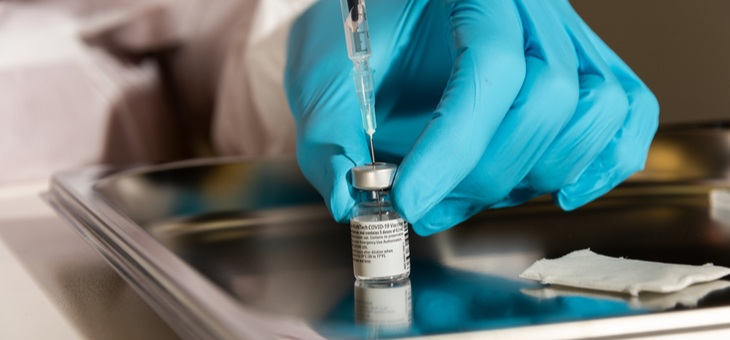COVID-19 vaccination has finally started, but the program will only work if a large enough proportion of the population agrees to be vaccinated.
If the public doesn’t embrace the vaccines, Australia’s population could still be at risk.
The good news is that new research from the University of Melbourne shows that willingness to take the vaccine is very high in Australia.
The university surveyed more than 1000 Australians to gauge their attitudes to various COVID-19 policies, including vaccinations.
Read more: Vaccine overdose cases raise questions over training
The survey found strong public approval of COVID-19 policies and high levels of trust in information coming from the federal government, the chief medical officer and medical scientists.
The survey also found many Australians (76 per cent) reported that they were likely to get vaccinated.
Associate Professor Aaron Martin says Australia’s response to the public health problem was much better than many other countries around the world.
Read more: Vaccine passports on trial by Air New Zealand
“In Australia we are seeing high levels of support for COVID-19 policies at both the state and federal level,” Assoc. Prof. Martin explained.
“We also find that when it comes to COVID-19 information, citizens trust information coming from government almost as much as they trust information coming from scientists. This is not always the case in other comparable democracies.”
He said that it was important to look at levels of trust in government because this had important consequences for social compliance, adherence to future policy decisions and overall effectiveness in responding to the pandemic.
Read more: Can you choose what vaccine you get?
“We had 84 per cent of respondents state that they trusted information coming from the federal government ‘a lot’ or ‘a little’,” he said. “This figure was comparable to the trust respondents expressed in information coming from the chief medical officer (87 per cent), medical scientists (88 per cent) and their relevant state/territory (83 per cent) government.
“These findings suggest that trends toward lower levels of trust in government do not translate into distrust of COVID information.”
Assoc. Prof. Martin attributed general success of Australia’s COVID-19 policies to the high levels of trust in the government’s COVID-19 messaging.
The survey found that the rules ‘designed to reduce the spread of COVID’ had been applied ‘fairly’ (70 per cent), ‘effectively’ (66 per cent) and ‘successfully’ (71 per cent).
The Australian response, which has consistently deferred to the knowledge of experts, has helped foster a greater sense of trust among the Australian public, Assoc. Prof. Martin explained.
The survey also found many Australians (76 per cent) reporting that they are likely to get vaccinated – but as the survey was fielded in January the caveat ‘once a safe and effective vaccine is available’ was added.
Respondents who supported compulsory vaccination of all Australians was 73 per cent, with 51 per cent agreeing that unemployment benefits and other government payments should be contingent on vaccination.
The survey also asked respondents how they would feel about censoring false information that could lead to the further spread of COVID-19, such as that disseminated by anti-vaxxers.
More than half of respondents (58 per cent) said that they would feel comfortable with some level of censorship.
Have you had your vaccine shot yet? Are you planning to have it soon? How much do you trust the government information related to the pandemic?
If you enjoy our content, don’t keep it to yourself. Share our free eNews with your friends and encourage them to sign up.

